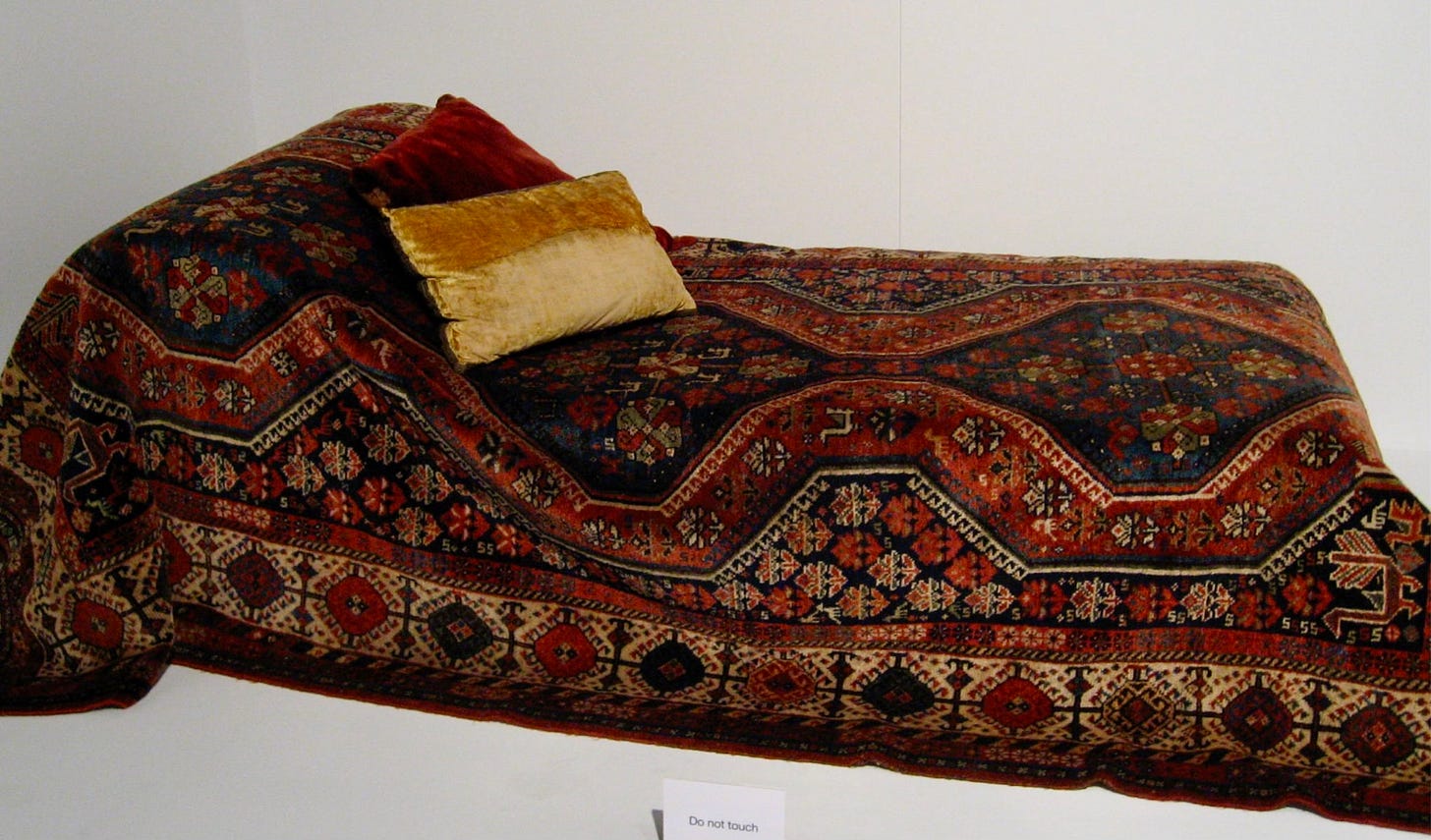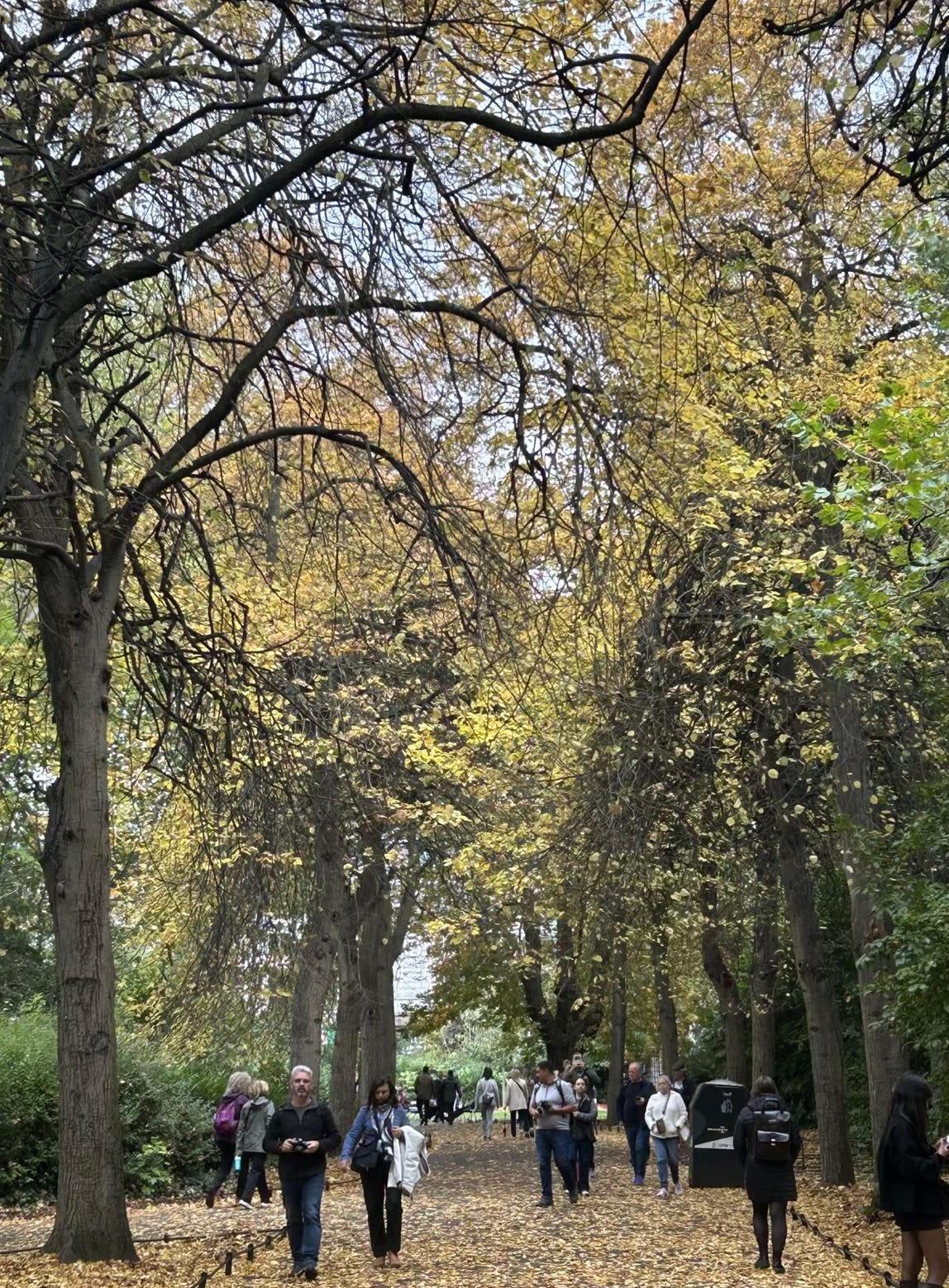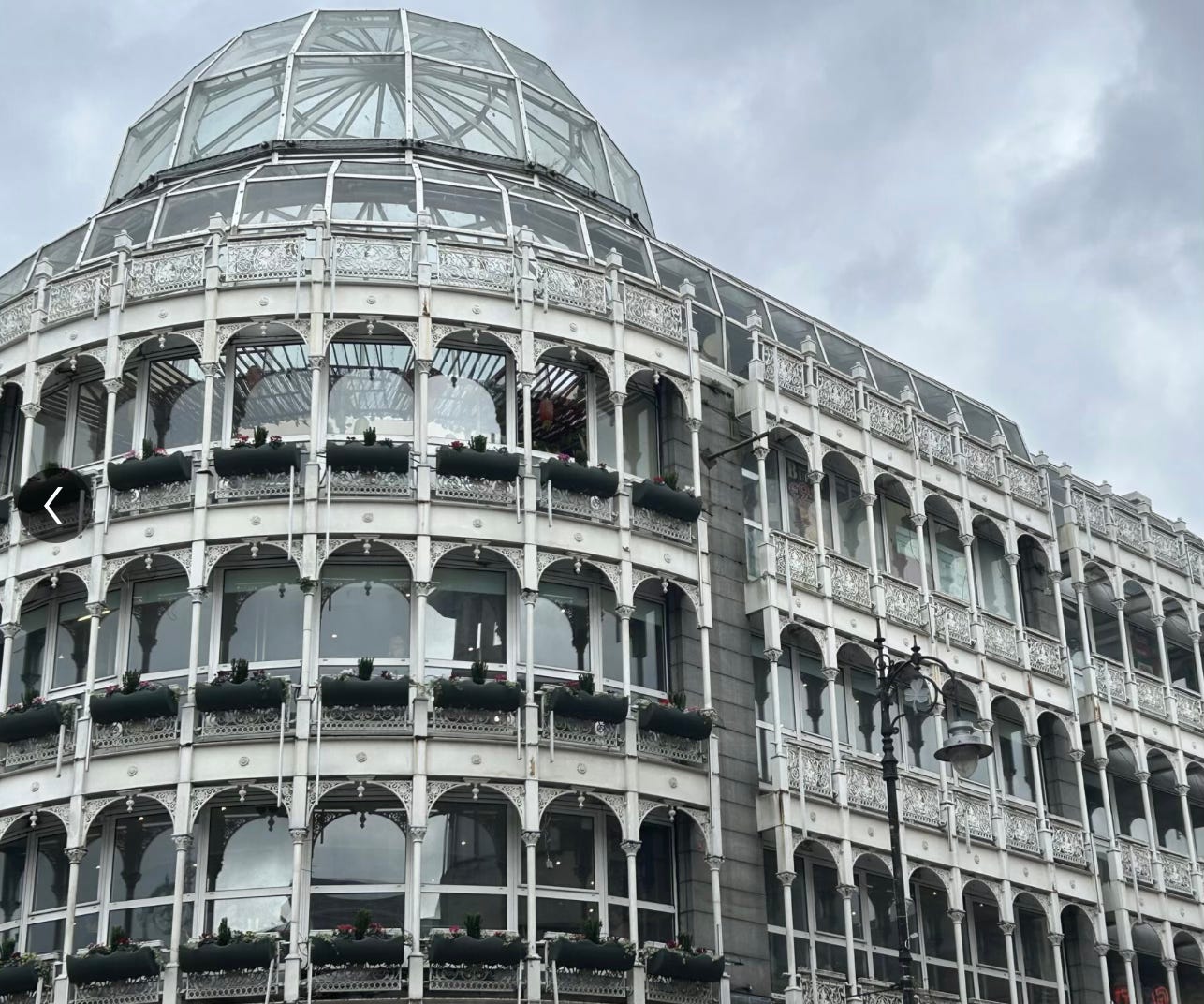Every other Thursday I travel from Galway to Dublin by train to lie on the couch, for my Lacanian psychoanalysis. I have two variable length sessions with a couple of hours break between.
Today I left for the station on my bike at 7am as a gale was approaching Galway. The rain was fast thick and relentless. As I walked onto the train dripping wet I wondered whether I should turn around as the weather will get worse. I didn’t turn back, which made me reflect on why I have such a strong investment in psychoanalysis..... what is its value?
In the two sessions today we covered much ground, I revisited my childhood, reflected on the life phases I have passed through, thought about the present pleasures and the anxieties I have and about future desires and concerns.... It’s always surprising what you can cover in a short psychoanalytic session that you have not consciously prepared for. I often arrive with no idea what I will talk about then I free associate and the work begins.
Symptoms
Today I discussed one of my symptoms and how I have put it to work for myself and society. This concept of putting our symptoms to work was transformational for my self-understanding and personal development, and also for my work with others as a coach and consultant. Our symptoms are the essences we circle around in our lives, which can lead to repetitive dysfunctional patterns, or they can be put to work..... for self and society.
Previous therapy and psychoanalytic approaches I engaged with were all about reparation, where the symptom could be alleviated or got rid of completely. The talking cure meant unearthing repressed thoughts and cleansing ourselves, one of Freud’s early patients called this ‘chimney sweeping’.
But in analysis today I was reminded that this attempt to clean ourselves of our symptoms, to purify ourselves of the ‘bad uncuonscious’ or to repair ourselves is misleading. As my analyst succinctly put it “the struggle to get rid of the symptom is the cause of suffering”.
Value
The value of psychoanalysis cannot be measured, and this is one of its great values..... it creates a world beyond the contemporary obsession of measurement, goals and performance. It liberates us from the ‘calculated-self’ imposed by the Big Other, and encourages us to live....to be alive.
Another value of psychoanalysis is that it works when you are not conscious of it working. It works before, between and after sessions. On my analysis days, the analysis of todays sessions begin the evening before, then on the train, it continues at lunchtime as I walk, freely associating to myself and in relationship to the context and environment.... then traveling home the unconscious puts fragments together and with the help of sleep and dreams things begin to find their place and I feel more enlivened and little less burdened by the grief I live with. We pay our psychoanalyst’s per session, but the work it provokes and stimulates is unlimited….. now thats great value!
A further value that being in analysis brings, which again cannot be calculated, is the psychoanalytic sensibility one attains from engaging in this ‘work’. Paying attention to the unconscious and working with an analyst brings a heightened awareness of the unconscious and a greater sensitivity to our own emotional life and that of others. This psychoanalytic sensibility I carry into my work and my relationships. When with somebody struggling with challenges, I am able to draw on this unconscious sensibility which stops me trying to help or immediately solve their problem, but to think about what is really going on. To pick up emotions and nuances, reading my own bodies reactions and theirs, giving myself time to process and sense-make. In today’s coaching, consulting and leadership development world, everybody is chasing tools and techniques to fix things. Yet what we work with in Lacanian tradition is transmission…. it’s not a method to learn, or a tool to use, but a sensibility that is passed from analyst to client, and is co-produced within the clinical sessions. The process of psychoanalysis is a collaborative endeavour that enhances all parties. Paying attention to, and noticing the unconscious, and listening with a psychoanalytic sensibility to our bodies, our emotions and to each other, we discover how the unconscious is not only within us, but also is relational.
Finally, a key value of being in psychoanalysis that is often missed is that it is systemic. We think that being in therapy or analysis as an individualistic practice, all about working on the self, and of course this is partly true. However, the work goes beyond the self. The individual, knowingly or unknowingly, is always working on behalf of the wider systems and contexts they inhabit. Individuals bring their relational, family and work systems (and their environmental and cultural selves) into their analysis. In reverse, they transmit their learning, development and experiences back into the ecosystems they live and work in. When in psychoanalysis the individual is working on behalf of their ecosystem whether they wish to or not.
Ending
The work on the couch is not always easy, revisiting past traumas is often painful, however in my analysis sessions we are not attached to the wounded-self, and the revisiting of past joys and pleasures reminds me of good times, and richness as well.
The real value of psychoanalysis for me has been that my entanglements become less constricting, and more like vines in a forest entangling themselves with the trees to create something of beauty. My engagement with the unconscious and the emotional life of myself, others, organisations and wider society I believe is enriching for all. As a by-product it makes me a sharper, more insightful and empathetic consultant, coach and leader.
Today as I wandered to lunch in the psychoanalytic gap between sessions, through St Stephens Green, past Dublin landmarks, I was grateful that I didn’t turn back earlier this morning. For the investment is more than worth it and the value it gives for me, my family and for my work is unmeasurable.





Wonderful, once again, Simon. Thank you. (And I concur, not that I needed to.)